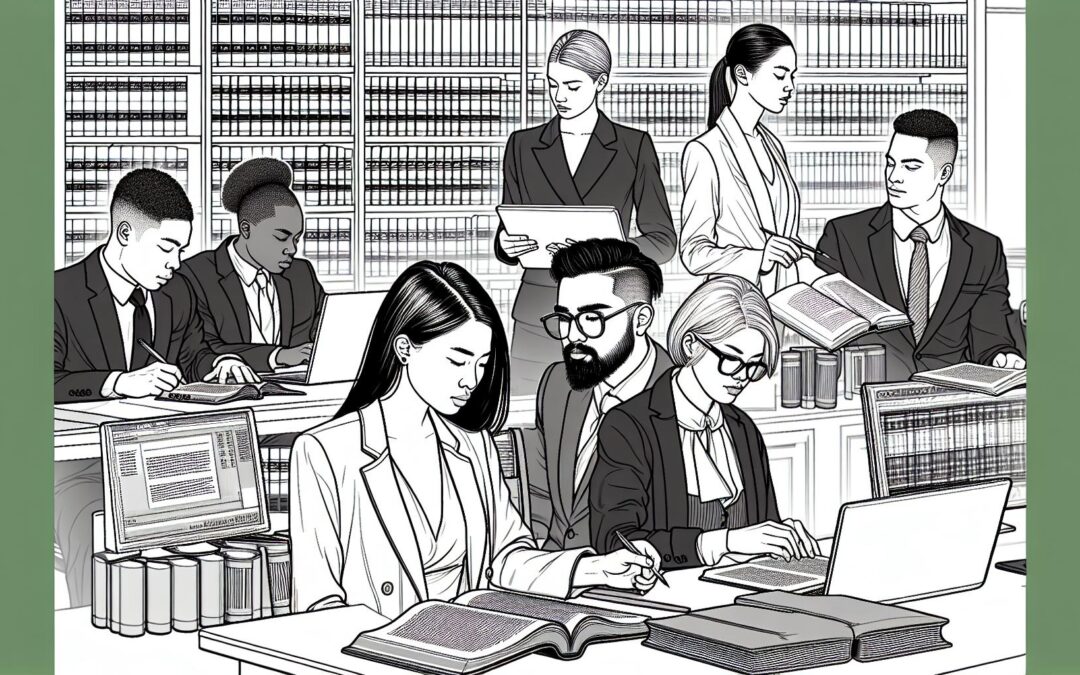In today’s global society, the protection of intellectual property has become increasingly important. Businesses and individuals alike invest significant time, effort, and resources into creating and developing innovative ideas, inventions, and creative works. Intellectual property refers to the legal rights that protect these intangible assets, such as patents, trademarks, copyrights, and trade secrets. Understanding intellectual property and its significance is crucial for individuals and organizations seeking to safeguard their innovations and creations.
Understanding Intellectual Property: A Brief Overview
Intellectual property encompasses a wide range of intangible assets that are valuable to their creators. These assets are protected by various legal mechanisms to prevent unauthorized use and exploitation. By granting exclusive rights to the creators, intellectual property laws encourage innovation, creativity, and economic growth.
At the core of intellectual property is the protection of ideas and expressions. It allows creators to have control over the use and distribution of their innovative works, inventions, or brands. This protection fosters an environment where inventors and artists feel secure in sharing their creations with the world.
Intellectual property plays a crucial role in our modern society. It helps drive innovation, protects investments, incentivizes creativity, and fuels economic growth. Without the protection of intellectual property, inventors, artists, and businesses would face significant challenges in capturing the value of their work.
Moreover, intellectual property fosters competition by providing a legal framework that encourages inventors and creators to continually push the boundaries of what is possible. It rewards those who invest resources and time in developing novel solutions and products.
Furthermore, intellectual property rights contribute to the overall knowledge and culture of society by promoting the exchange of ideas and information. By encouraging creators to disclose their innovations, intellectual property laws ensure the free flow of information and knowledge, benefiting society as a whole.
There are several distinct types of intellectual property, each with its unique characteristics and protections:
The Importance of Intellectual Property
Copyrights protect original works of authorship, such as literary, artistic, musical, or dramatic creations. These rights provide authors with exclusive control over the reproduction, distribution, and adaptation of their works. Copyrights typically last for the author’s lifetime plus 70 years.
Patents protect inventions by granting the inventor exclusive rights for a limited period. Patents encourage innovation by allowing inventors to profit from their creations and giving them a competitive advantage. In exchange for disclosure of their invention to the public, inventors receive the right to exclude others from making, using, or selling their invention for a specified period, usually 20 years.
Trademarks provide exclusive rights to use distinctive signs, symbols, or names that differentiate goods or services in the marketplace. Trademark protection affords business owners the ability to establish and protect their brand identity and reputation. Trademark rights can last indefinitely as long as they are actively used and protected.
Trade secrets refer to confidential and valuable business information that gives companies a competitive advantage. Unlike other forms of intellectual property, trade secrets are not publicly registered and rely on maintaining their secrecy. Trade secret protection can extend indefinitely as long as the information remains confidential.
Understanding the different types of intellectual property is essential for creators, inventors, and businesses. By knowing the specific protections available, they can strategically safeguard their intangible assets and leverage them to their advantage.
Additionally, intellectual property laws vary across different jurisdictions, which adds complexity to the overall landscape. It is crucial for individuals and organizations to be aware of the legal frameworks and requirements in the countries where they operate or seek protection.
Enforcement of intellectual property rights is another critical aspect. While laws exist to protect creators, inventors, and businesses, enforcement can be challenging. Intellectual property infringement cases often involve complex legal proceedings, requiring expert knowledge and resources to navigate successfully.
Intellectual property rights also intersect with technology and the digital age. With the rise of the internet and digital platforms, issues such as online piracy, copyright infringement, and counterfeiting have become more prevalent. Policymakers and legal experts continuously grapple with finding the right balance between protecting intellectual property and ensuring access to information in the digital era.
In conclusion, intellectual property is a vital aspect of our society, fostering innovation, creativity, and economic growth. It provides creators, inventors, and businesses with the necessary tools to protect and monetize their intangible assets. Understanding the different types of intellectual property and the legal frameworks surrounding them is crucial for individuals and organizations alike.
The Role of a Domestic Representative in Intellectual Property
In the realm of intellectual property, the role of a domestic representative is crucial for individuals or businesses seeking protection in a foreign country. A domestic representative acts as the point of contact and legal representative for the intellectual property owner in a specific jurisdiction.
Duties and Responsibilities of a Domestic Representative
A domestic representative is responsible for handling various aspects related to intellectual property rights in a specific country. These responsibilities often include filing applications, coordinating with local authorities, representing the owner’s interests, and ensuring compliance with local laws and regulations.
One of the key duties of a domestic representative is to file applications on behalf of the intellectual property owner. This involves preparing and submitting the necessary paperwork, such as patent or trademark applications, to the relevant government agencies. The domestic representative must ensure that all required information is included and that the applications meet the specific requirements of the jurisdiction.
Once the applications are filed, the domestic representative is responsible for coordinating with local authorities throughout the examination process. This may involve responding to queries or requests for additional information from the examining officials. The representative must carefully review and analyze any office actions or objections raised by the authorities and provide appropriate responses on behalf of the owner.
In addition to handling the application process, a domestic representative also plays a crucial role in representing the owner’s interests. This includes attending hearings or meetings with government officials, negotiating on behalf of the owner, and advocating for the protection of their intellectual property rights. The representative must have a deep understanding of the owner’s rights and be able to effectively communicate and assert those rights in a foreign jurisdiction.
Furthermore, a domestic representative must ensure compliance with local laws and regulations pertaining to intellectual property. This involves staying up-to-date with any changes or updates in the legal framework and advising the owner on any necessary actions or adjustments to maintain compliance. The representative may also be responsible for monitoring and enforcing the owner’s intellectual property rights, such as taking legal action against infringers or counterfeiters.
How to Become a Domestic Representative
Becoming a domestic representative typically requires a deep understanding of intellectual property rights and the legal framework in the specific jurisdiction. Professionals with a background in law, intellectual property management, or relevant expertise often serve as domestic representatives. In some cases, individuals or businesses may opt to hire external consultants or law firms with expertise in foreign intellectual property laws.
To become a domestic representative, one must possess strong knowledge of the intellectual property laws and regulations of the specific jurisdiction in which they wish to operate. This includes understanding the requirements for filing applications, the examination process, and the enforcement mechanisms available. Additionally, a domestic representative should have excellent communication and negotiation skills, as they will be interacting with government officials, legal professionals, and other stakeholders on behalf of the intellectual property owner.
Continued professional development and staying updated with the latest developments in intellectual property laws are essential for a domestic representative. This can be achieved through attending seminars, conferences, and workshops, as well as actively participating in professional organizations or associations related to intellectual property.
In conclusion, the role of a domestic representative in intellectual property is vital for individuals or businesses seeking protection in foreign countries. They take on various duties and responsibilities, including filing applications, coordinating with local authorities, representing the owner’s interests, and ensuring compliance with local laws. Becoming a domestic representative requires a deep understanding of intellectual property rights and the legal framework of the specific jurisdiction, as well as strong communication and negotiation skills. It is a profession that demands continuous learning and staying updated with the ever-evolving landscape of intellectual property laws.
Key Intellectual Property Terminologies
To effectively navigate the world of intellectual property, it is essential to familiarize oneself with key terminologies:
Copyrights: Definition and Importance
Copyrights grant authors exclusive rights over their original creative works, including writings, music, art, movies, and software. By providing creators with control over the reproduction, distribution, and adaptation of their works, copyrights incentivize and reward creativity. Authors can license or sell their copyrighted works, generating income and protecting their economic rights.
Patents: Understanding its Significance
Patents protect inventions by granting inventors the exclusive right to exclude others from making, using, or selling their patented inventions. Patents play a crucial role in encouraging innovation by providing inventors with a period of exclusivity to recoup their investment and gain a competitive advantage. Patent protection promotes technological progress by stimulating research and development activities.
Trademarks: What They Are and Why They Matter
Trademarks are distinctive signs or symbols used to identify and differentiate goods or services in the marketplace. They are crucial for establishing and protecting a brand’s identity, reputation, and goodwill. Trademark protection allows businesses to prevent others from using confusingly similar marks, thus avoiding brand dilution and ensuring consumer trust.
Trade Secrets: An In-depth Explanation
Trade secrets encompass confidential information, such as formulas, recipes, processes, or customer lists, which provide companies with a competitive edge. Unlike other forms of intellectual property, trade secrets can remain protected indefinitely as long as they are kept confidential. Trade secret protection allows businesses to maintain their competitive advantage by safeguarding valuable information from unauthorized use or disclosure.
The Intersection of Domestic Representation and Intellectual Property
When it comes to protecting intellectual property in a foreign jurisdiction, the role of a domestic representative becomes paramount. Domestic representatives play a crucial role in safeguarding the rights and interests of intellectual property owners in unfamiliar territories.
How Domestic Representatives Protect Intellectual Property
Domestic representatives provide essential services to intellectual property owners, including:
- Assistance with filing applications and managing the registration process.
- Monitoring and responding to intellectual property infringement cases.
- Coordinating with local authorities and legal representatives.
- Ensuring compliance with local laws and regulations.
- Representing the interests of the intellectual property owner in legal proceedings.
Case Studies of Domestic Representatives in Action
Many successful cases demonstrate the effectiveness of domestic representatives in protecting intellectual property rights across international borders. For example, a software company seeking market entry in a foreign country may rely on a domestic representative to navigate the local legal framework, register their trademarks, and enforce their copyrights. The domestic representative ensures that the company’s intellectual property rights are respected and defends against infringement.
Future Trends in Intellectual Property and Domestic Representation
As technology and global markets continue to evolve, intellectual property and domestic representation are also experiencing significant changes. Understanding these emerging trends is crucial for individuals and businesses seeking to protect their intellectual property rights.
The Impact of Technology on Intellectual Property
The rise of digital technologies has revolutionized the way intellectual property is created, distributed, and accessed. With the advent of the internet, the ease of sharing and copying digital content has presented unique challenges for intellectual property protection. However, technology also offers new tools and solutions, such as blockchain-based copyright management systems or AI-powered infringement detection algorithms, that can enhance intellectual property protection in the digital age.
The Evolving Role of Domestic Representatives in the Digital Age
In the digital age, domestic representatives are adapting to new challenges brought about by the online landscape. With the global reach of the internet, intellectual property infringements can occur across borders, making it crucial for domestic representatives to have a comprehensive understanding of international intellectual property laws. Moreover, domestic representatives must stay abreast of emerging digital trends and technologies to provide effective guidance and protection to intellectual property owners.
In conclusion, understanding intellectual property and its terminology is essential for individuals and businesses seeking to protect their innovations and creations. The role of a domestic representative is invaluable when navigating international intellectual property laws and ensuring the safeguarding of intellectual property rights. As technology continues to shape the intellectual property landscape, it is crucial to stay informed about emerging trends and adaptations in domestic representation. By embracing these changes and fostering a culture of respect for intellectual property, we can create an environment that encourages creativity, innovation, and economic growth.











